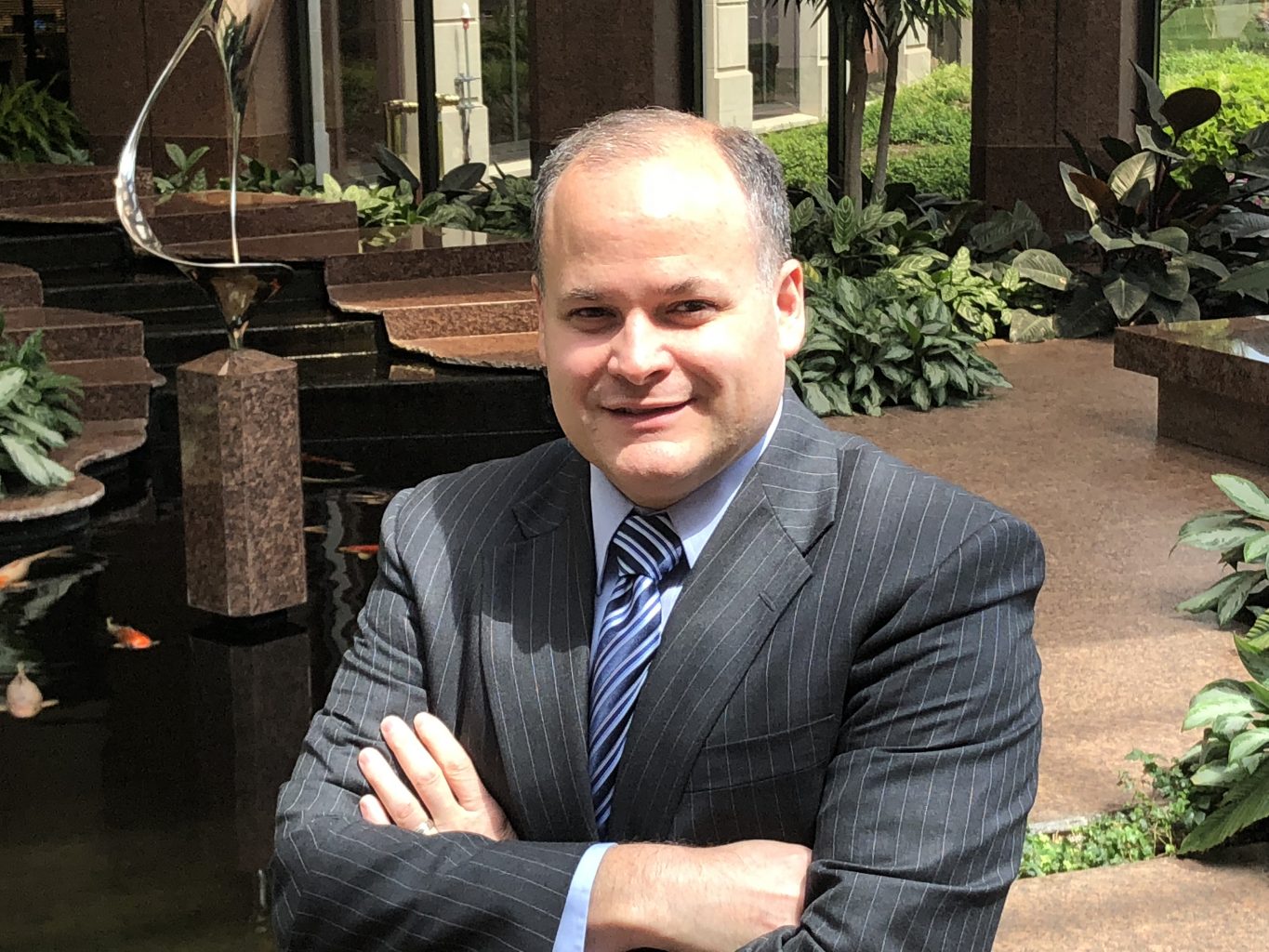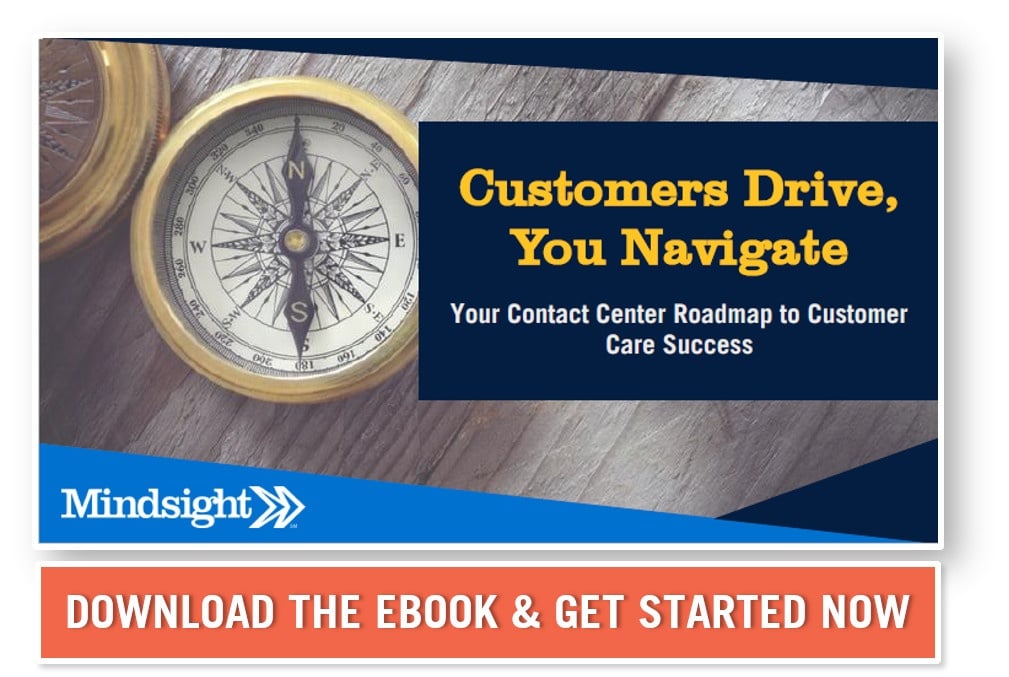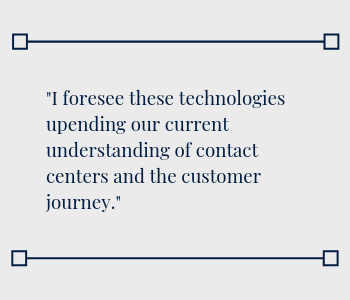June 18, 2019 by Siobhan Climer
John Irey, a Mindsight Principal Consultant, sat down with Siobhan Climer, Mindsight’s Technology Writer, to discuss Mindsight’s vision for providing contact center technology expertise to clients across the U.S.
John Irey is a Principal Consultant at Mindsight, an IT Services and Consulting firm located in the Chicago area. With nearly 20 years of experience in information technology, John has helped businesses of every size optimize the technology powering the contact center. He has extensive experience with contact center technologies and seeks to provide a consultative voice to contact center leaders, who rely on Mindsight’s transparency to make the best technology investments. John earned his BA/BS in Information Systems and continues to focus on how emerging technology, such as machine learning and artificial intelligence, impact the contact center. John enjoys spending his free time with his wife and two young children.
Becoming A Contact Center Expert
Siobhan Climer: The skills needed in your role are diverse. What was your path to becoming an engineer?
John Irey: I’ve always had access to technology. It’s something that has always been there for me. Literally, in Kindergarten my school had an Apple 2e lab, and my family bought one – so I had a computer at home, too.
I had an aptitude for technology, too. My mom was a French teacher and she always asked “How do you know how to do this?” and I would say, “How do you know how to conjugate a verb in French?” You just know, and I just know. It’s really about understanding how things go together and logical flows – how things interact.
 Despite growing up around computers, I actually shied away from engineering. When I went to college, I didn’t want to be a computer science major because my perception was that I would be stuck in a basement with no human interaction. I didn’t want that. So, I went to Drake, which is a liberal arts school, and studied business and marketing. That’s when I learned about the information systems major. I switched into that once I saw all the companies hiring people I knew.
Despite growing up around computers, I actually shied away from engineering. When I went to college, I didn’t want to be a computer science major because my perception was that I would be stuck in a basement with no human interaction. I didn’t want that. So, I went to Drake, which is a liberal arts school, and studied business and marketing. That’s when I learned about the information systems major. I switched into that once I saw all the companies hiring people I knew.
I’d worked in web applications for a few years when the voice over IP (VoIP) boom hit and – due to some needs at the company I worked at – I took the training and pivoted into the contact center. It was, and is, such a niche. I excelled at talking to all the different stakeholders – that background in business and marketing became invaluable – and focusing on contact center technology became a natural progression in my work.
SC: What exactly is a “Principal Consultant”? What is your typical day like?
JI: Keep in mind that I wear many hats. I still do deployments. I’m still an engineer. The Principal Consultant side is more talking to customers about what they have, getting an idea of what they need – it’s a lot of listening and then coming up with solutions.
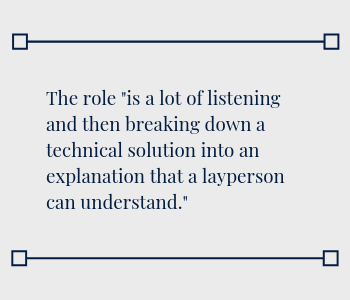 Sometimes I’m drawing from things I’ve already done, and a lot of times companies like to hear that I’ve done this for someone like them. Sometimes it’s coming up with creative new solutions that solve their problems, perhaps involving a new technology or an upgrade to get a new feature.
Sometimes I’m drawing from things I’ve already done, and a lot of times companies like to hear that I’ve done this for someone like them. Sometimes it’s coming up with creative new solutions that solve their problems, perhaps involving a new technology or an upgrade to get a new feature.
In the end, though, it’s a lot of listening and then breaking down a technical solution into an explanation that a layperson can understand. It’s key that I don’t just speak technical.
Customers with whom I have a really good rapport invite me to talk to the different lines of business about what their problems are. And I can talk about solutions without getting into how many virtual servers that’s going to require or the network speeds because – really – who cares about that?
Learn how our experts design and execute a contact center roadmap with our eBook: Customers Drive, You Navigate: Your Contact Center Roadmap To Customer Care Success.
Contact Center Technology
SC: Contact centers fill a particular niche in businesses today. What makes the contact center unique?
JI: Unlike other technologies, the contact center is more focused on the business side. It’s very different than route/switch or networks – those folks care about storage and speeds and the cloud. They have a reason to care. We hear from businesses with contact centers who want to move to the cloud, but they’re usually chasing a feature, not the cloud itself.
Contact center technology isn’t a cookie-cutter thing to do. Small, big, different sectors – no two contact centers are the same. And while a lot of companies want me to dive right in and start coming up with solutions, I’ve learned it’s critical that I listen to them first and get a solid understanding of their customers and the customers’ journey, their pain points and needs.
I’ve gone into a college of medicine with a bunch of doctors around a table and they’ll say: “We want you to tell us what we need to do with our phone tree. What needs to be first?” And my response is: “Whoa. Who are you? Are you a school? I don’t even know!”
You have to back up. I can’t just assume the last phone tree I designed will apply to you. When I start with a group, we get in front of a blank whiteboard and we’ll start at the top with their main phone number.
“Here’s your main number. A call comes in.
“Who’s calling? Why are they calling? What do we want to say? Do we want to say, ‘Thank you for calling XYZ’ or does even that need to vary based on who the caller is?”
We map it out and, ultimately, build the right solution for the customer.
SC: What are the current technological challenges in the contact center?
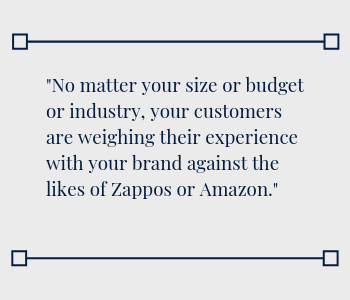 JI: Businesses today have to come to terms with a difficult reality; no matter your size or budget or industry, your customers are weighing their experience with your brand against the likes of Zappos or Amazon.
JI: Businesses today have to come to terms with a difficult reality; no matter your size or budget or industry, your customers are weighing their experience with your brand against the likes of Zappos or Amazon.
The other side of this, though, is that for most companies the challenges are organizational, not technical. When someone in the business champions the idea that they are going to take the customer experience seriously, the technology fits in far more smoothly.
Once that initial value hurdle has been crossed, we can help create the roadmap for putting the technology in place. In many cases, this simply involves turning on features the company already owns – optimizing existing deployments.
SC: How do you see emerging technology affecting the contact center?
JI: There is no doubt contact centers are getting smarter. When implemented correctly, things like artificial intelligence (AI) and chatbots enhance the customer experience by drastically reducing effort.
The other thing people need to remember is that the customer isn’t necessarily going to remain human. With the IoT boom, we are seeing more and more automated interactions. This is going to lead to an incredible amount of possibilities – for other technologies to come into play and for improvements in the customer journey, regardless of whether that customer is a person or a device.
The Mindsight Difference
SC: What is the most rewarding part of your work at Mindsight?
JI: First, it’s the people. I get to work with an amazing group of people. On top of that, I appreciate that every day brings something different. One day I might be helping a small community clinic organization better serve their population through the contact center. The next I may be helping a multinational consumers goods company sort through years of different hands making changes in their systems.
One thing’s for sure: it is never mundane.
 SC: It’s important we’re always learning and remain excited. What are you interested in learning more about?
SC: It’s important we’re always learning and remain excited. What are you interested in learning more about?
JI: I have spent my career deciding the cases, conditions, and outcomes that contacts and customers follow when interacting with businesses. But the future is deviating from those hard-coded paths. The possible paths and combinations of paths are almost uncountable. I definitely want to dive deeper into machine learning and artificial intelligence, as I foresee these technologies upending our current understanding of contact centers and the customer journey.
Like what you read?
About Mindsight
Mindsight, a Chicago IT services provider, is an extension of your team. Our culture is built on transparency and trust, and our team is made up of extraordinary people – the kinds of people you would hire. We have one of the largest expert-level engineering teams delivering the full spectrum of IT services and solutions, from cloud to infrastructure, collaboration to contact center. Our highly-certified engineers and process-oriented excellence have certainly been key to our success. But what really sets us apart is our straightforward and honest approach to every conversation, whether it is for an emerging business or global enterprise. Our customers rely on our thought leadership, responsiveness, and dedication to solving their toughest technology challenges.
About The Author
Siobhan Climer, Science and Technology Writer for Mindsight, writes about technology trends in education, healthcare, and business. She previously taught STEM programs in elementary classrooms and museums, and writes extensively about cybersecurity, disaster recovery, cloud services, backups, data storage, network infrastructure, and the contact center. When she’s not writing tech, she’s writing fantasy, gardening, and exploring the world with her twin two-year old daughters. Find her on twitter @techtalksio.
